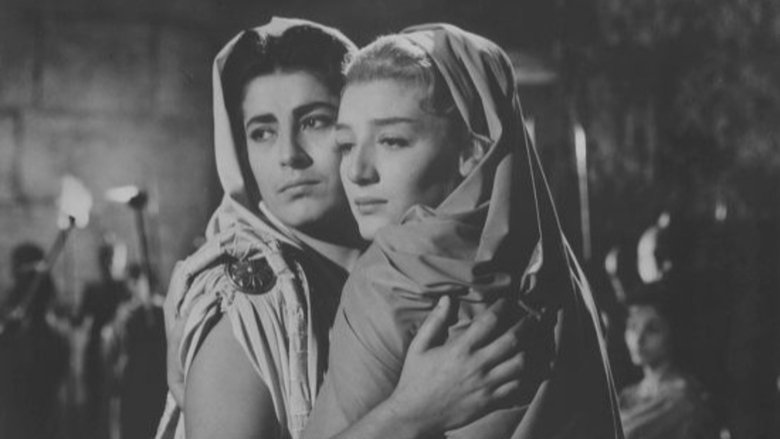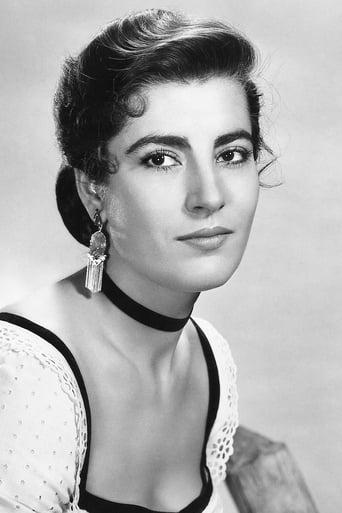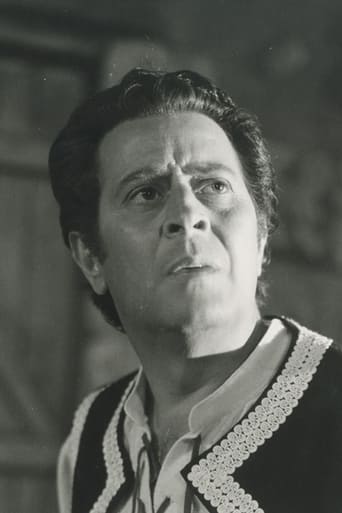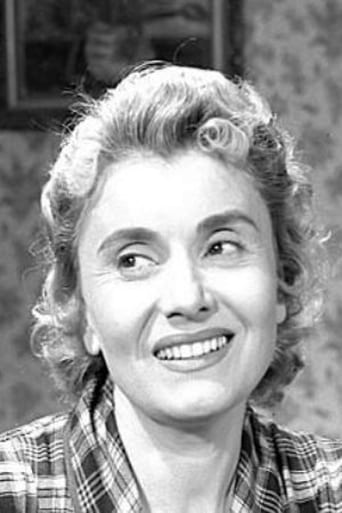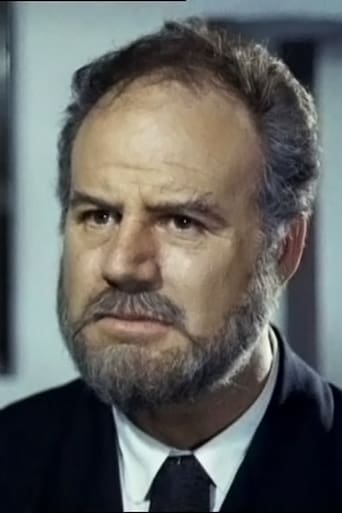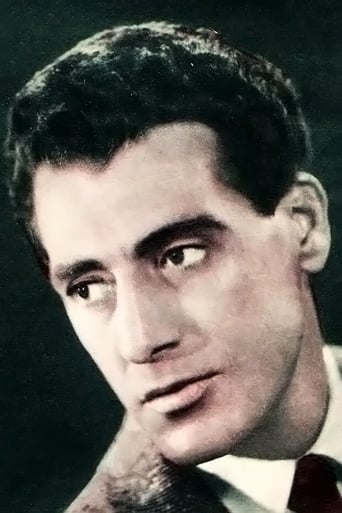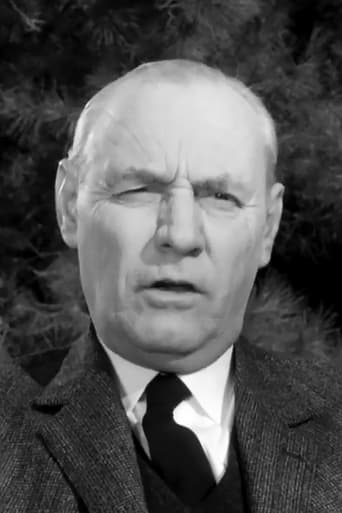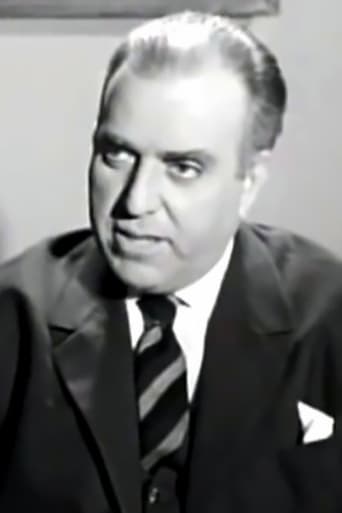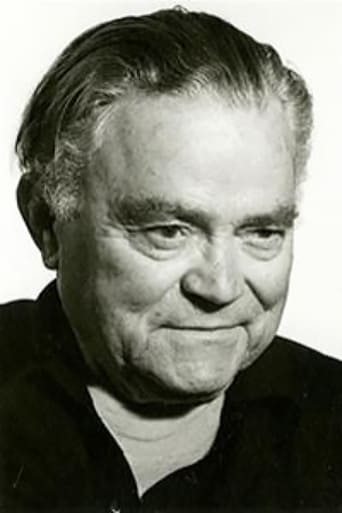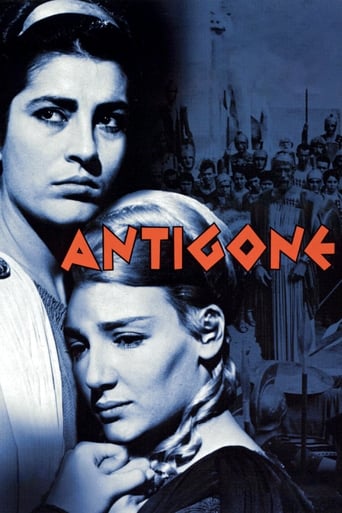
In Thebes in ancient Greece, King Oedipus kills his father and marries his mother Jocasta, having two sons - Eteocles and Polyneices - and two daughters - Ismene and Antigone. King Oedipus dies a beggar in the exile after gouging out his own eye, and Eteocle agrees to reign in Thebes in alternating years with Polynices. However, he refuses to resign after the first year and Polynieces raises an army and attacks Thebes, and they kill each other. The ruler of Thebes Creon decrees that Eleocles should have an honorable burial while the body of the traitor Polyneices should be left on the battlefield to be eaten by the jackals and vultures. However, Antigone, who was betrothed to Creon's surviving son Haemon, defies Creon's orders and buries her brother. When Creon is reported of the attitude of Antigone, he sentences her to be placed in a tomb alive. Antigone hangs herself in the tomb and Haemon tries to kill his father first and then he kills himself with his sword...
Similar titles
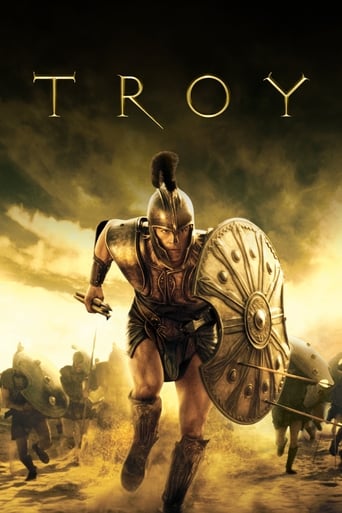
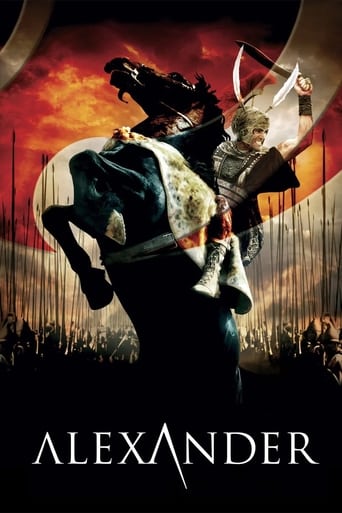
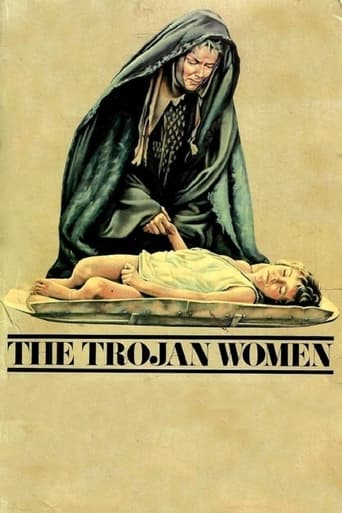

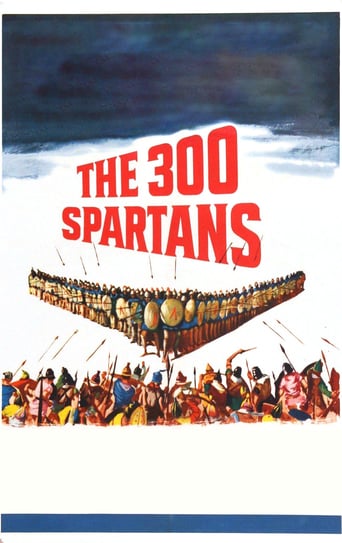

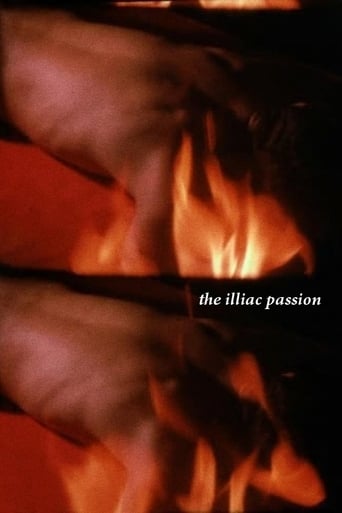
You May Also Like
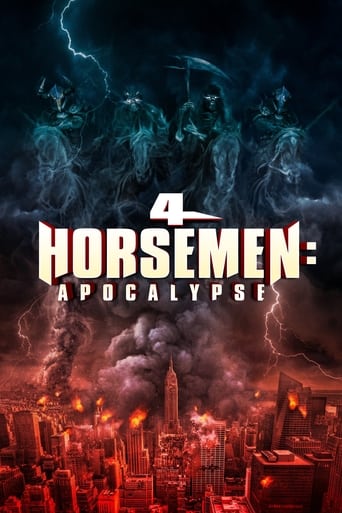
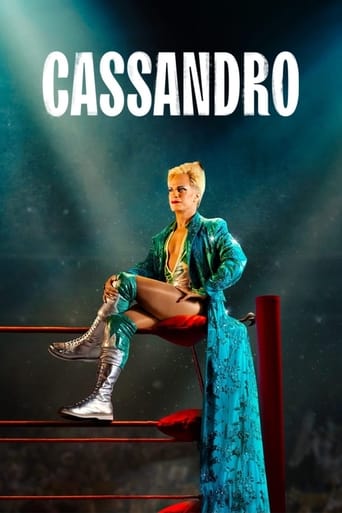
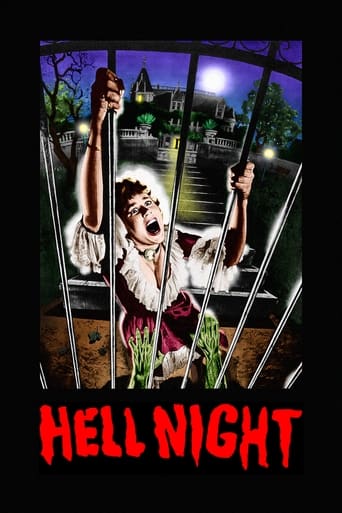
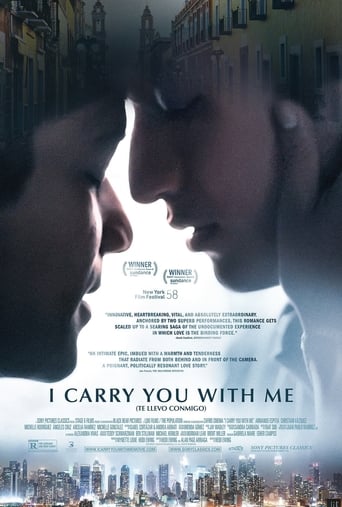

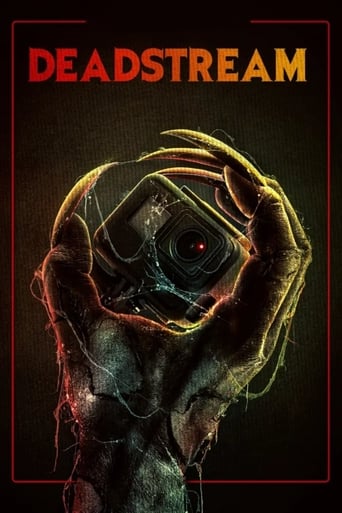

Reviews
People are voting emotionally.
Good concept, poorly executed.
Don't listen to the negative reviews
It's funny, it's tense, it features two great performances from two actors and the director expertly creates a web of odd tension where you actually don't know what is happening for the majority of the run time.
When Antigone's two brothers are killed, King Creon rules that only Polynices will be denied a proper burial because he died an enemy of the state. While Polynices died banding together with others against the city of Thebes, his brother Eteocles died defending the state. Antigone buries her brother Polynices even though the King ordered that he be neither touched nor buried. When caught, Antigone did not argue nor deny her actions, for she believed what she did was right. When banished to a cave, Antigone killed herself before the king could retract his punishment. The morality in question here is about the placement of Antigone's loyalty. Should she obey the commands of her God or the commands of her city's ruler? In Crito, Socrates claims that disobeying one's country is worse than disobeying one's mother and father; that doing so harms the soul, and makes life not worth living. Antigone's moral beliefs however were to obey the rules of her God and give her brother a proper burial, and rather than breaking those rules, she acted upon them and accepted her fate calmly just as Socrates did in the Apology. In Euthyphro, Socrates ponders over the meaning of "piety" with Euthyphro, and although a definition is never reached, many examples of piety are given. Actions that are pleasing to the gods, or that are concerned with the care of the gods are all pious actions and therefore good and moral. This is because the gods would not will anything that is immoral. I think that in Euthyphro and Socrates' opinion, Antigone's actions would be moral because she is acting upon her knowledge of the rules of the gods.
In the film Antigone, the debate on what is just and unjust is presented. This theme is of course a very popular topic in Greek literature. The Greek philosopher, Socrates, questioned many times what to follow based on what is considered just. The film depicts the character Antigone going against King Creon's decree by doing what she considers just, but ultimately, she died standing up for her cause. Creon, who is the current king to the city of Thebes, has recently taken the throne after the exile and death of the previous king, Oedipus, and the death of his two sons, Polyneices and Eteocles. After Oedipus left Thebes, his two sons were left to switch back and forth being king of the city. The first brother to have a turn was Eteocles. When the time came for his reign to end, he of course, did not want to give up his noble position. So based on his brother's inability to step down, Polyneices decide to revolt and started a war against the city of Thebes. Ultimately, both brothers were killed in the battle. After their deaths, Creon took the throne, and since Polyneices was the one who started the war, Creon deemed him a traitor and Eteocles a hero for defending the city. For Creon's first edict as king, he declares that Eteocles will receive a rightful burial, but Polyneices' body will be left in the desert unburied since he was a traitor and does not deserve a rightful burial. Antigone, who is one of Polyneices and Eteocles' sisters, does not agree with this edict, and viewers too might have conflicting views on this edict. Antigone is faced with the tough decision to either follow the unwritten laws of the gods that say to bury the body or the written laws of the city that say to follow the king's command. Antigone struggles with her decision, but since she sees Polyneices as her brother and not as a traitor, she rebels against the laws of the city and follows what the gods' command. Similarly, in the book Apology, the author Plato transcribes Socrates' speech of defending himself against living a philosophical life. Socrates too had to make a similar decision like Antigone to either follow the god that told Socrates to live his philosophical life, or follow the city's command of him stopping his philosophical life. Socrates, like Antigone, chose to follow the god because he thought it was more just to follow the god than to follow the city's laws in that situation. Due to them both rebelling against their cities' laws, Socrates and Antigone were both sentenced to death. Creon did not want her blood on his hands, so he left the decision up to Antigone to either live or die. Antigone eventually killed herself since she was put in a cave to die. She knew that she was ultimately going to be judged by the gods, so in her mind since she followed the gods' commands, she exemplified justice and had nothing to lose by ending her life for her just cause. At this point in the film, viewers may feel bad for Antigone's death since she was only trying to do the right thing, or they could agree that she broke the laws, and therefore, her death was justified. Socrates too decided to face his death instead of escaping. However, in the book Crito, Socrates reasons for facing his punishment were because the laws of the city told him to do so not the god. Because of this change in who to follow, one could argue that it seems as if it is just to follow both the laws of the city and the gods, but it may depend on the situation and person. So as a viewer of the film Antigone; however, we see that it is more just to follow the gods, because in the end they stopped hearing the prayers of the city and turned against Thebes because of King Creon's actions.
Antigone is faced with an ethical dilemma at the beginning of the tragedy when King Creon ordered that one of her brothers, Eteocles, would be given the burial of a hero. Her other brother, Polynices, was to be left outside of the city unburied for wild animals to pick apart. Anyone who disobeyed this decree would be put to death. Antigone is forced to make a life-altering decision: to risk death and bury her brother or to go against the will of the gods. Antigone decides to go against the will of the King and bury her brother. No one knows that it was her who went against the king. After the king has his men uncover the body, the guards of the body catch her burying him a second time. Was her action justified? In her defense, she proclaims that the gods order that he must be buried. In Euthyphro, however, it was determined that an action is not just simply because the gods command it. Furthermore, there was no need to bury him a second time, especially in broad daylight. This shows that it was no longer about honoring her brother or the gods; she wanted to spite the king.After her decision, King Creon is forced into an equally challenging ethical dilemma. He must decide to follow through with his word and sentence her to death or to have mercy on her. Despite his son and other's belief that it was a noble deed, the king believes that his power and authority will be jeopardized if he lets her live. He orders that Antigone be sealed in a tomb and left for dead. King Creon changes his mind, but it is too late. Antigone hung herself in her tomb. This triggers a causal chain, in which his son and his wife also commit suicide. He is left alone to suffer the consequences of his decision. The inflexibility of both parties caused the tragedy to occur.
Moral claims do not give rise to philosophical grounds. Yet, In Antigone it is clear that moral actions prompt philosophical questions, and inherently make good drama.This review acts as a strict focus on how moral and ethical points are made throughout the film, and how they act as catalysts to progress the story and keep the viewer involved. Be it known that I have not read the Sopheclean text of Antigone, and fully derive all of my comments and criticisms solely within the boundaries of the film.The character flaws present in the film mostly derive from wayward and distorted adherences to moral ideologies. For example, Antigone's ethical and moral backbone throughout the film is guided by powerful intangibles like love and loneliness, which makes her rash and at times misguided. Creon's moral code is also in knots as he acts as a Euthyphro in the fact that he is conflicted and contradictory to many of his beliefs that shape him, i.e. his aforementioned moral code. Values undoubtedly shaped the society of Ancient Greece. Loyalty was a cornerstone value in this society, yet loyalty drifts and fades as tides turn in Antigone. For example, as Creon is crowned King of Thebes he is shown immediate support as the new benevolent King, yet mourning for Oedipus, or any mention of him whatsoever is non existent. Is this a loyal Thebes? Though support of Creon was warranted by his grace, the remembrances of a fallen king laid flat. As Creon sits on his thrown surrounded by his court he states, "The country's foe is always mine." Little did Creon know that he was the biggest threat to his country, and thus his own foe. Because of the nature of Greek Tragedies and the intuition of most people, the common viewer could understand this at first glimpse. It was clear that Creon's hubris and pride would be his downfall.Antigone, acting as the protagonist in the film, is the embodiment of good. Yet, contradictions within her moral ideology leads to questioning what "good" actually is. Is her entire moral and ethical embodiment good? Is it her choices of which moral standpoints to act upon that are what is good? Or is it her actions that are good? Simply put, Antigone is a walking paradox. It is impossible to know what is good. Acting against Zeus due to her undying love and care for her brother, or burying her brother because it is just in the Gods' eyes to do so. Both are contradictory and both can be good.It is clear that both the protagonist and antagonist have inner conflicts. Their inner ideologies contradict. What makes one a "protagonist" and another an "antagonist" lies in the fact that the shared ideologies between them also conflict. Inner contradictions within an individual which conflict with another individuals already clashing ideologies makes it impossible to know who is right and who is wrong. Both characters were acting upon the same ethical grounds. They acted to safeguard human law, religious law, and family values. Is it then that moral grounds are shaped by convenience and circumstance? Does one's moral backbone fit the skeleton of a different distortion of themselves? Is moral rectitude a variable of space and time? Is it the contradictions of moral standpoints that are convenient because they can be malleable to fit any form? These are the questions that I believe the film poses. The film does a fantastic job at examining exactly what grants a legitimate moral claim or action, which most people are curious about. Reason is man's most precious gift, and by the will of nature, the tone of his reasoning is determined by his moral code.
Top Streaming Movies











